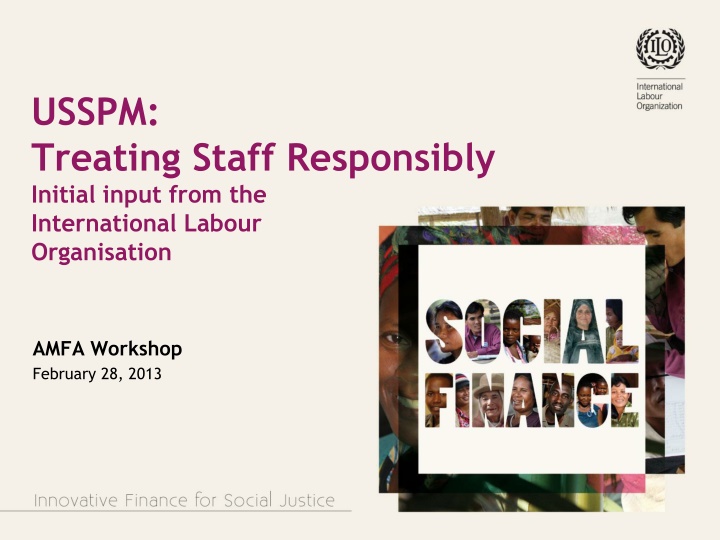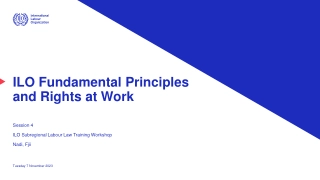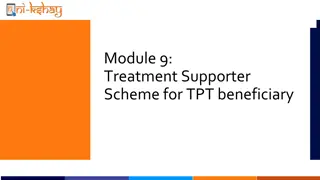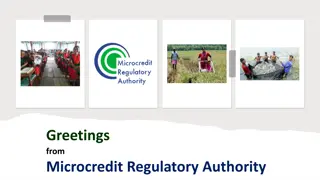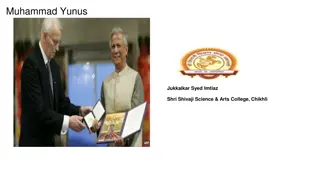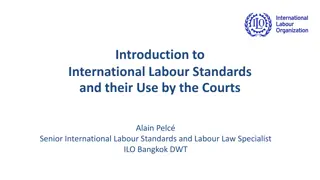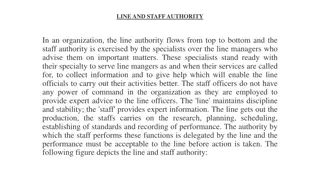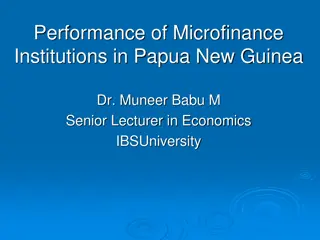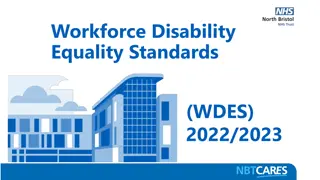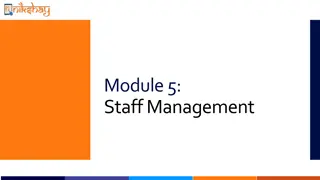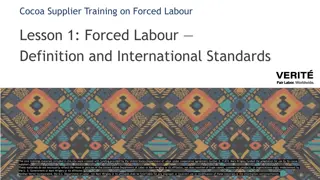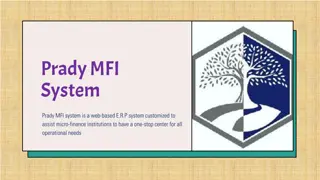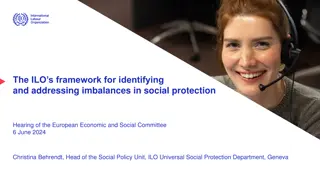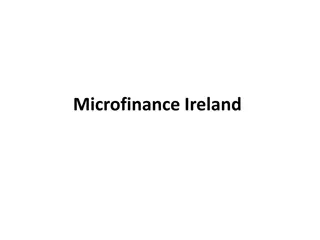Ensuring Responsible Treatment of Microfinance Staff: ILO Guidelines
The International Labour Organisation (ILO) emphasizes the importance of treating microfinance employees responsibly through the USSPM framework. Improving staff welfare benefits the microfinance industry by attracting talent, enhancing productivity, and avoiding negative publicity. Key aspects include HR policies, working conditions, health, safety, and non-discrimination practices.
Download Presentation

Please find below an Image/Link to download the presentation.
The content on the website is provided AS IS for your information and personal use only. It may not be sold, licensed, or shared on other websites without obtaining consent from the author.If you encounter any issues during the download, it is possible that the publisher has removed the file from their server.
You are allowed to download the files provided on this website for personal or commercial use, subject to the condition that they are used lawfully. All files are the property of their respective owners.
The content on the website is provided AS IS for your information and personal use only. It may not be sold, licensed, or shared on other websites without obtaining consent from the author.
E N D
Presentation Transcript
USSPM: Treating Staff Responsibly Initial input from the International Labour Organisation AMFA Workshop February 28, 2013
Why is ILO engaging in the USSPM? Over the last decade, the microfinance industry has focussed much on the impact that financial services have on the livelihoods of clients. Very seldom do we hear about the people that make that change happen the employees of MFIs. They are the backbone of microfinance operations, and without their wellbeing no MFI can succeed at its full potential. => Ensuring that employee rights are respected is at the heart of ILO work. The USSPM are a step towards reaching this goal in the global microfinance industry.
Why would an MFI engage in improving responsibility towards staff? Hm... just for compliance with the USSPM ?!? There might be others: To comply with national and international law To have a comparative advantage Attract the best employees To improve the MFI s business Better safety at work results in productivity gains Staff retention reduces costs for hiring, re-training To avoid negative publicity e.g. no forced / child labour in any area of operations (e.g. cafeteria) To attract responsible investors
Standard 5a.1 A written Human Resources policy is available to all employees; is compliant with any existing national law; and explains employees rights related to all of the following: wages, benefits, working conditions, safety at work, non- discrimination, freedom of association, and grievance resolution. 1. 2. How does your staff access the HR policy, how readily available is it? How does the policy cover working conditions (including overtime pay), especially for field staff? Do you have any collective bargaining agreement in place? How do you determine levels of remuneration, are staff representatives involved? How many employees are members in a trade union? What areas of non-discrimination are covered (gender, ethic background, disability, HIV/AIDS, sexual orientation, etc.) 3. 4. 5. 6.
Standard 5a.5 and 6 The institution assesses the health and safety risks (e.g., excessive pressure and work load, driving without helmets) that employees face on the job and provides to employees, free of charge, the training and equipment necessary to mitigate those risks. The institution documents, reports, and investigates all occupational accidents, injuries or diseases. 1. How does MFI assess health and safety risks? Is a joint management-worker safety committee in place to investigate and review accidents? What equipment is provided free of charge, which equipment does the employee have to cost share? How many work days were lost last year due to occupational accidents? 2. 3.
Standard 5b.4 Employee rules include specific provisions on what is considered acceptable/ unacceptable behavior. Provisions describe reprimands and actions that can result in termination of employment. Employees are informed of penalties for non- compliance with ethics code/collections policies, violations are sanctioned, and sufficient monitoring of the practices (by operations department, internal audits) is carried out to provide education or sanctions as necessary. 1. Rules should be fair. How does MFI ensure that they are developed in consultation with employees? Rules should be applied consistently. How does MFI ensure periodic independent review of reprimands / punishments? Procedures should be fair. How does MFI ensure that burden of proof is on management? Can employee appeal to independent decision maker? 2. 3.
Compliance with standards concerning Treating Staff Responsibly is no rocket science the main ingredient is dialogue between management and staff.
